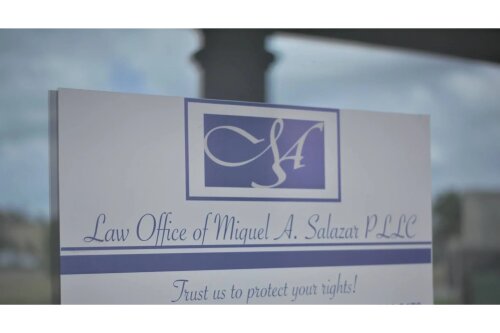Best Sexual Abuse Lawyers in United States
Share your needs with us, get contacted by law firms.
Free. Takes 2 min.
Or refine your search by selecting a city:
List of the best lawyers in United States
About Sexual Abuse Law in United States
Sexual abuse is a serious violation of human rights and encompasses a range of unwanted sexual behaviors perpetrated against a person without their consent. In the United States, sexual abuse laws are designed to protect individuals from these violations and hold perpetrators accountable. Such laws cover a wide gamut, including rape, sexual assault, molestation, and other forms of sexual violence. Federal and state laws both play roles in addressing sexual abuse, with definitions and penalties varying by jurisdiction. Understanding these laws is crucial for survivors seeking justice and protection.
Why You May Need a Lawyer
There are several situations where seeking legal guidance in matters of sexual abuse is vital:
- To File a Lawsuit: Pursuing a civil lawsuit for damages requires legal expertise to navigate the complexities of the legal system, gather evidence, and represent your interests effectively.
- Court Representation: Whether you are the victim or falsely accused, having legal representation is crucial in court proceedings to ensure your rights are protected.
- Understanding Legal Rights: A lawyer can help clarify your rights under federal and state laws, and advise on the best course of action.
- Support in Reporting: Legal counsel can assist in the process of reporting the crime, ensuring all legal protocols are followed, and advocating on your behalf with law enforcement.
- Negotiations and Settlements: A lawyer can help negotiate settlements or plea deals, if preferable, and ensure that any agreements are fair and legally sound.
Local Laws Overview
The legal framework for handling cases of sexual abuse varies across different states in the U.S., but some common elements and overarching principles exist:
- Definition and Categorization: Most states categorize sexual abuse based on the severity of the act, such as first, second, or third-degree sexual assault, each carrying different penalties.
- Consent: The age and mental capacity to consent are set by state laws, and violations can result in severe penalties.
- Statute of Limitations: Each state has a statute of limitations, which is the timeframe within which a victim must file a lawsuit or pursue charges.
- Mandatory Reporting: Certain professionals (e.g., teachers, doctors) are required by law to report suspected instances of sexual abuse.
- Protection Orders: Victims can seek protection orders against perpetrators, and states have specific procedures for obtaining them.
Frequently Asked Questions
What should I do if I am a victim of sexual abuse?
Seek safety immediately, contact local authorities to report the abuse, and seek medical attention. It is also crucial to get in touch with a counselor or support organization to begin the recovery process.
How can I prove sexual abuse in court?
Evidence such as physical injuries, witness testimony, medical records, and forensic evidence can be crucial. A lawyer can help compile and present such evidence effectively.
What are my legal rights as a survivor of sexual abuse?
Survivors have the right to seek justice through the legal system, pursue compensation for damages, and access services for recovery and protection.
Can I file a civil lawsuit against the perpetrator?
Yes, survivors can file civil lawsuits to seek compensation for the harm suffered, independent of criminal proceedings.
How does the age of consent affect a sexual abuse case?
If the victim is below the age of consent as defined by the state, any sexual activity with them is automatically considered sexual abuse or statutory rape.
What is the role of law enforcement in these cases?
Law enforcement agencies investigate allegations of sexual abuse, collect evidence, carry out arrests, and may help prosecutors in building a legal case.
What support services are available for survivors?
A variety of support services exist, including counseling, advocacy organizations, and hotlines offering immediate help and guidance to survivors.
How can I seek a protection order?
Contact your local court or a lawyer to understand the procedure to file for a protection order, which can offer legal protection from the abuser.
Can a lawyer help me in interactions with law enforcement?
Yes, a lawyer can guide you through the process, accompany you during police questioning, and ensure that your rights are respected.
What if I am falsely accused of sexual abuse?
If falsely accused, it's critical to seek legal representation immediately to protect your rights and reputation, and to navigate the defense process.
Additional Resources
Consider reaching out to the following organizations for support and guidance:
- RAINN (Rape, Abuse & Incest National Network): Offers support and resources for survivors.
- The National Sexual Violence Resource Center (NSVRC): Provides information and resources to combat sexual violence.
- Women's Law Initiative: Offers state-specific legal information and resources for survivors of sexual violence.
- Local Law Enforcement Agencies: Provide immediate assistance and help in reporting crimes.
- Legal Aid Societies: Offer free or low-cost legal advice and representation.
Next Steps
If you need legal assistance in dealing with sexual abuse, consider taking these steps:
- Seek Immediate Help: Contact local authorities and secure a safe environment.
- Document Everything: Keep detailed records of all incidents and communications related to the abuse.
- Find Legal Representation: Reach out to a lawyer who specializes in sexual abuse cases to get expert advice and representation.
- Access Support Services: Utilize counseling and support groups to aid in your recovery and provide emotional support.
- Pursue Legal Action: Work with your lawyer to determine the best course for legal action, whether it's a civil lawsuit or criminal proceedings.
Lawzana helps you find the best lawyers and law firms in United States through a curated and pre-screened list of qualified legal professionals. Our platform offers rankings and detailed profiles of attorneys and law firms, allowing you to compare based on practice areas, including Sexual Abuse, experience, and client feedback.
Each profile includes a description of the firm's areas of practice, client reviews, team members and partners, year of establishment, spoken languages, office locations, contact information, social media presence, and any published articles or resources. Most firms on our platform speak English and are experienced in both local and international legal matters.
Get a quote from top-rated law firms in United States — quickly, securely, and without unnecessary hassle.
Disclaimer:
The information provided on this page is for general informational purposes only and does not constitute legal advice. While we strive to ensure the accuracy and relevance of the content, legal information may change over time, and interpretations of the law can vary. You should always consult with a qualified legal professional for advice specific to your situation.
We disclaim all liability for actions taken or not taken based on the content of this page. If you believe any information is incorrect or outdated, please contact us, and we will review and update it where appropriate.
Browse sexual abuse law firms by state in United States
Refine your search by selecting a state.















